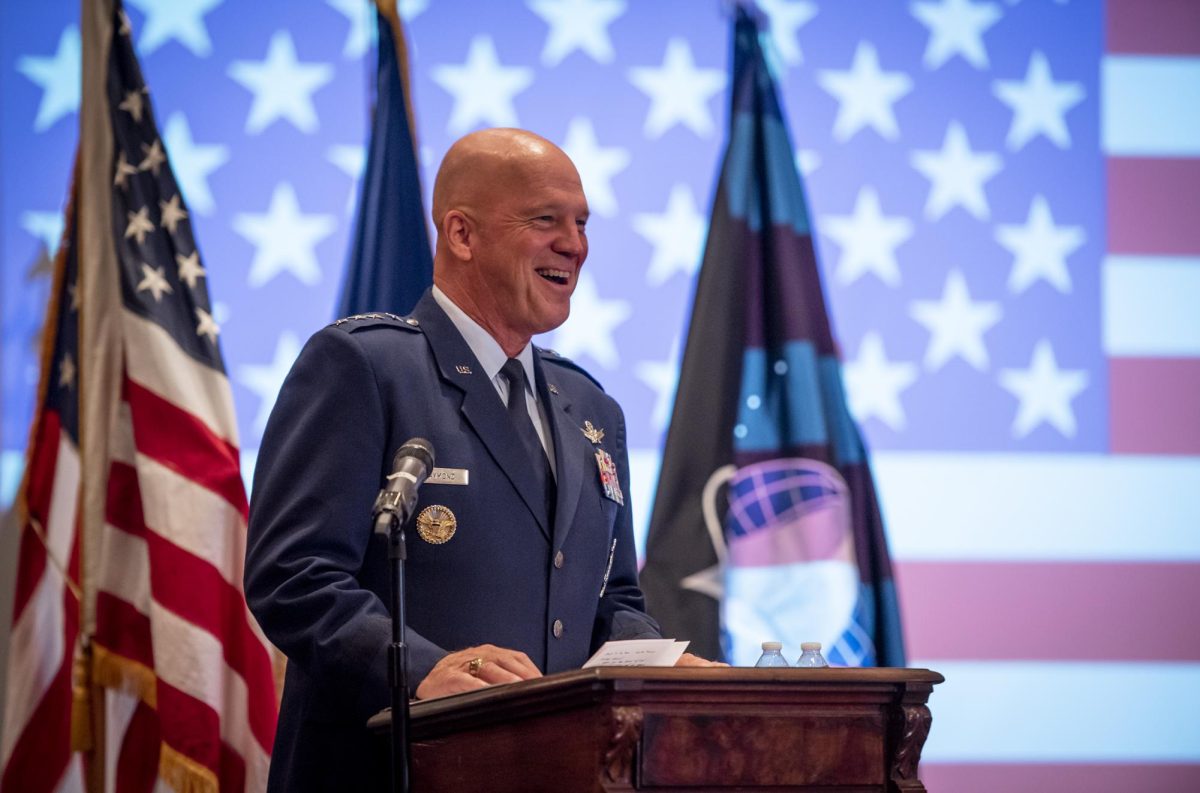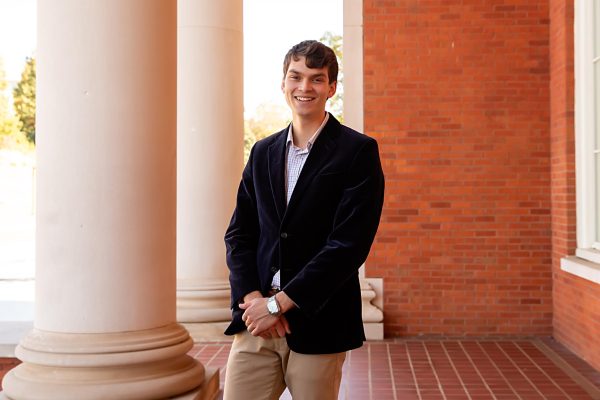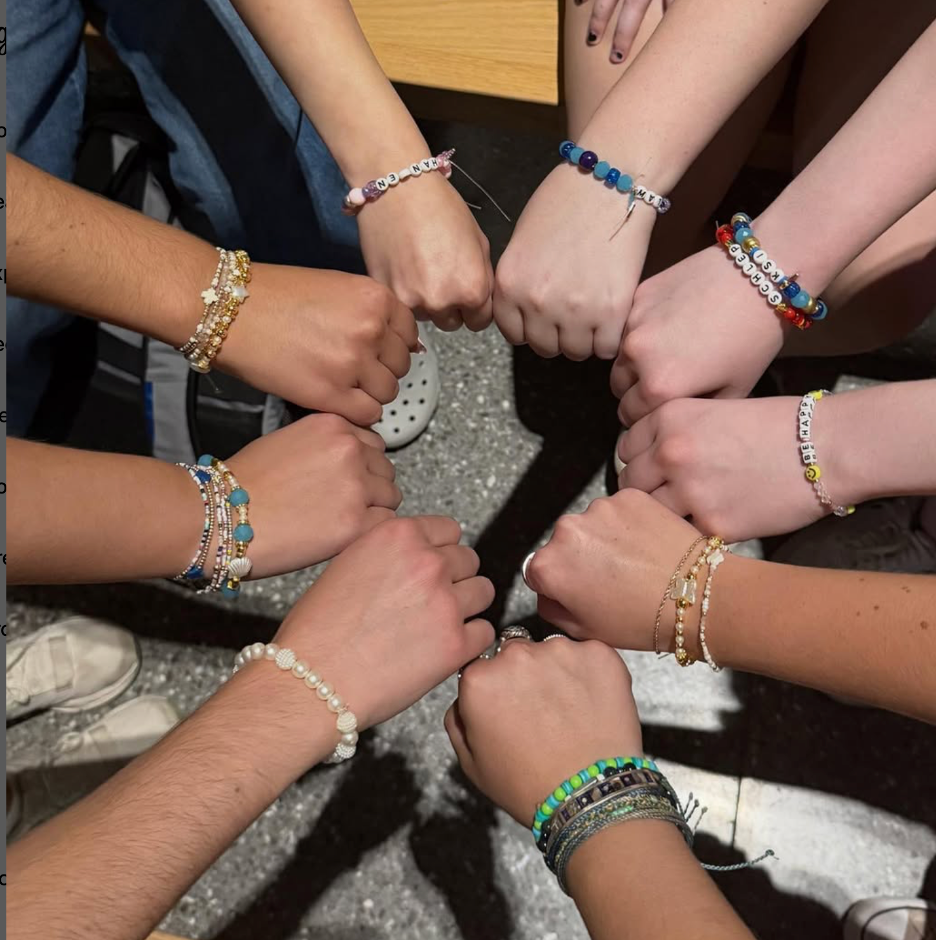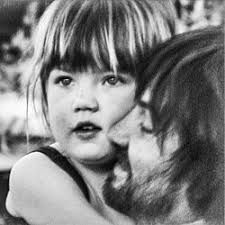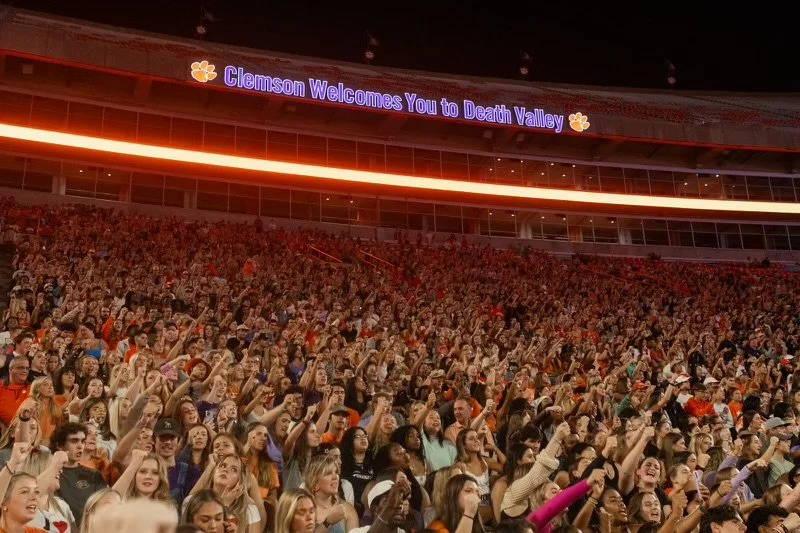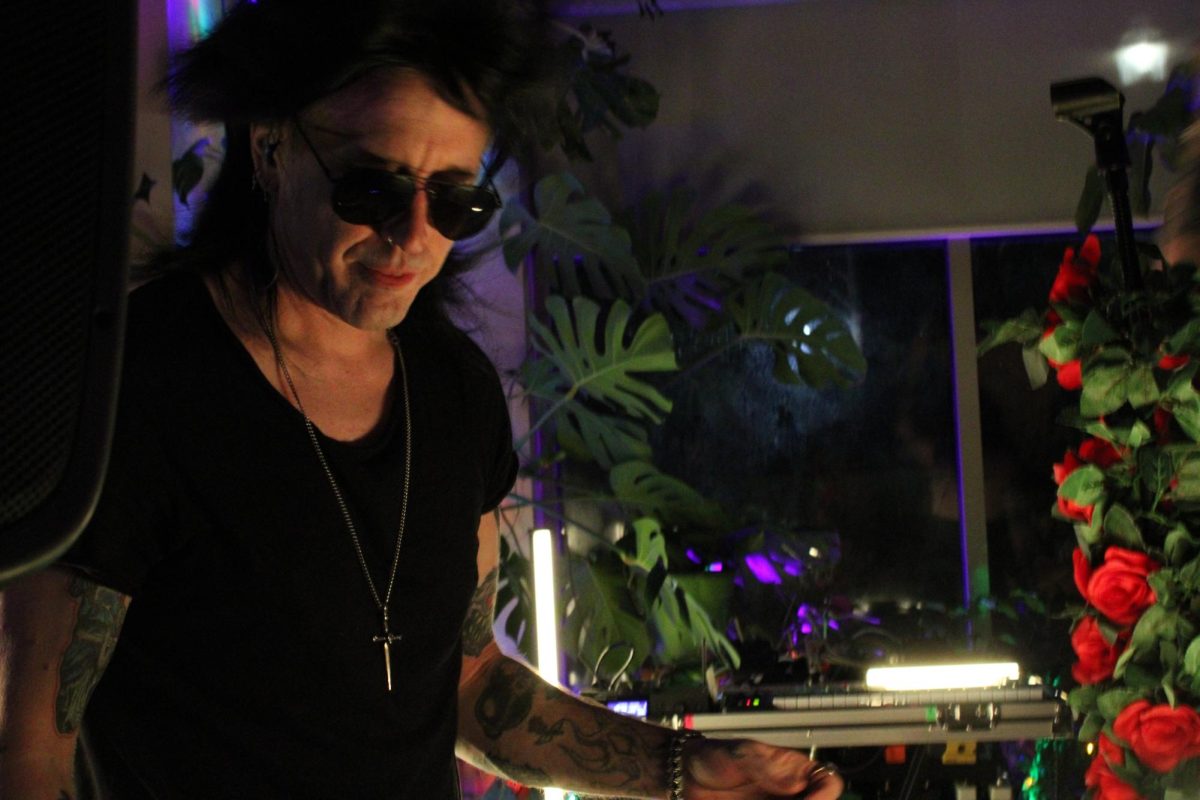Clemson has a rich-rooted legacy in military service, but only one alum has defended the United States at the highest level and the highest altitude.
Gen. John W. Raymond graduated from Clemson in 1984 and helped defend the United States as the first-ever chief of space operations, the highest rank in the U.S. Space Force.
Raymond remains the highest-ranking officer ever to graduate from Clemson University. In an interview with The Tiger, he gave wisdom for young professionals, insight into the evolving battlefield of space and recounted his fondest memories at Clemson.
During his time as a cadet, Raymond attended a speech from Gen. James Hartinger, a commander of the North American Aerospace Defense Command from 1980 to 1982.
“(Gen. Hartinger) mentioned standing up Space Command while he was here, and I was very interested from that moment on… it’s my passion, I would take space defense a million times,” Raymond said.
Listening to Hatringer sparked Raymond’s interest in space defense. While at Clemson, Raymond earned his Bachelor of Science in administrative management and was commissioned through the ROTC program to join the United States Air Force.
After Graduation, John Raymond, who was a lieutenant at the time, started as a missileer in charge of the maintenance and launch of ballistic missiles. After four years, he was stationed at Vandenberg Air Force Base near Santa Barbara, California. While there, the Air Force began to stand up the 30th Space Wing as a part of Air Force Space Command. That career move was the beginning of General Raymond’s long career in the final frontier.
On Dec. 20, 2019, the National Defense Authorization Act for Fiscal Year 2020 was signed into law, which included legislative provisions for the creation of the Space Force. Gen. John Raymond, commander of Air Force Space Command and U.S. Space Command, was appointed as the first chief of Space Operations. He held that position until November 2022.
The United States Space Force is the space service branch of the U.S. Armed Services. The mission of the space force is as follows: To provide freedom of operation for the United States in, from and to space; to conduct space operations; and to protect the interests of the United States in space.
But even before he was appointed, Gen. Raymond took pride in all of his posts as a military officer.
“I am thankful to say I have never had a bad assignment,” he said.
One of his most cherished assignments was his tour in Japan. In 2011, the island was hit by a 9.0-magnitude earthquake that caused a tsunami, which resulted in a reactor meltdown at the Fukushima Daini Nuclear Power Plant.
“Being stationed there and able to help with the disaster relief was such a fulfilling experience that I am glad I got to take part in.”
In service of the country as chief of space operations, Raymond was able to shape policy for the United States space defense strategy. His opinion is that the U.S. should be more open about its capabilities in space.
“It is hard to deter conflict if you cannot message to your adversaries that you can impose costs or remove benefits from them,” Raymond said. “It’s all about the calculus of war. The more info we can put out there about our capabilities, the simpler we can make the calculus and the easier it is to avoid any conflict.”
Looking back at his alma mater, Raymond stays involved. He said he tries to get back to Clemson once a year, especially for the military appreciation game. He has given classes in the business school, spoken at the commencement ceremony and taken all sorts of opportunities to stay involved with life on campus.
Raymond recalled one of his favorite events while enrolled. The Clemson Cadet Corps would run the game ball from Clemson all the way to the University of Georgia or the University of South Carolina, depending on which football team Clemson played away that year.
“It was always a huge task to plan logistics, public affairs, radio comms, all the things that go into a project like that,” Raymond said.
When not handling his academic responsibilities, Gen. Raymond appreciated downtown just like students today. Tiger Town Tavern has been a mainstay since it opened in 1977, but the general also fondly remembers a place called Bullwinkle’s, down by the Clemson Municipal building.
When asked about advice he would give to graduating cadets or any other graduating students, Raymond provided the same advice given to him by his leadership while at Clemson.
“You’re good enough to do really good. Don’t be bashful, be bold.” Raymond told The Tiger, “Don’t think that you are the new person and that you can’t do good. Take what you have learned from your parents and from school and from Clemson and apply it to your military service or whatever career you enter.”
Since Raymond entered space defense, one of the largest developments has been the economic viability of smaller satellites to be relevant and the explosion of commercial activity from them. In the ‘90s, there were attempts at sending up smaller satellites, but the technology just wasn’t there.
Now, however, the ability to launch a smaller, lighter satellite makes entering the industry much easier, pushing progress forward and increasing the capability of space systems. That advancement is helped in no small part by private industry venturing into the final frontier.
Raymond claims that commercial satellite systems can be leveraged in ways that public systems never were. He believes the future looks bright for commercial space operations, and he is proud of the commercial space industry.
Although he is now retired, Raymond still takes an active role in the Space Industry. Raymond sits on the board of directors at Axiom Space while also serving as Axiom’s strategic adviser on space domain safety and security matters.
Raymond’s time at Clemson may have been years ago, but his legacy shines through today.



